One World Currency
The Globe
Jos Rafael Abinader
University Press of America, Inc.
Lanham Boulder New York Toronto Plymouth, UK
Copyright 2014 by University Press of America, Inc.
4501 Forbes Boulevard, Suite 200, Lanham, Maryland 20706
UPA Aquisitions Department (301) 459-3366
10 Thornbury Road, Plymouth PL6 7PP, United Kingdom
All rights reserved
Printed in the United States of America
British Library Cataloguing in Publication Information Available
Library of Congress Control Number: 2014938513
ISBN: 978-0-7618-6385-4 (cloth : alk. paper)ISBN: 978-0-7618-6386-1 (electronic)
 TM The paper used in this publication meets the minimum requirements of American National Standard for Information Sciences Permanence of Paper for Printed Library Materials, ANSI/NISO Z39.48-1992.
TM The paper used in this publication meets the minimum requirements of American National Standard for Information Sciences Permanence of Paper for Printed Library Materials, ANSI/NISO Z39.48-1992.
Prologue
There is no question that this new contribution by Dr. Jos Rafael Abinader to the worlds bibliography on the topic One Global Currency: The Globe will provoke a great deal of debate and dispute, yet it constitutes a worthy contribution because it discusses the hot-button issue as to whether or not globalization will impact the circulation of more or fewer currencies, and if governments will be willing to forego their monetary sovereignty; and the phenomenon of electronic commerce, besides the foreign exchange market itself which makes an average of an estimated 1.6 trillion dollars of transactions daily at the worldwide level, describing a world without borders (Kenichi Ohmae) and geared towards a world market with a single currency.
Simultaneous with these trends, arose the phenomenon of this world where currencies issued by some 169 countries coexist at present, until the twelve member countries of the European Union (EU) decided to adopt the euro (2002). This brought the number of countries with their own currencies down to 158, without mentioning the process of dollarization that is taking place in some nations. The United States dollar still maintains its specific weight, with the euro becoming the currency of the 15 members of the EU, which on the 1st of May 2004 will become 25 countries with the entry into the EU of 10 new countries of the Old Continent, plus the Japanese yen, along with the pound sterling being important currencies.
It must be noted it was many years ago that Dr. Abinader published an essay proposing a single currency worldwide, a topic to which he has dedicated deep thought over the course of his long career as an economist and attorney, insisting that with the creation of the Globe, if accepted by the majority of the nations (it) would become the currency of international reserves (it) would substitute the currencies currently carrying out these functions.
We cannot fail to recall that on this side of the Atlantic in the past years an intense debate has opened up in favor and against dollarization similar, in some ways, to the process in the Old Continent of monetary regionalization that produced the response of the European Monetary System (EMS) which later led to the European Monetary Union and the creation of the EURO, and the materialization of the Euro-Zone. Even the countries of MERCOSUR (Mercado Comn del Sur, Southern Common Market), composed of Argentina, Brazil, Paraguay and Uruguay, considered the possibility of a single currency, within the process of what could be called the de-nationalization or regionalization of currency.
In a certain sense, the long road already traveled since the system created by the Bretton Woods agreements in 1944 with convertible currencies and fixed exchange rates, within a framework of free trade; the role played by the International Monetary Fund (IMF); the monetary crises and devaluations that led to the creation of Special Drawing Rights (SDR); the devaluation of the dollar in 1971; the Smithsonian Agreement; the floating of currencies in the European Economic Community (EEC) of that time with the monetary serpent, all culminated in the European Monetary Union (EMU), the euro and the creation of the European Central Bank (ECB) in 1998, with the EURO becoming transformed in January 2002 into legal tender in the 12 member countries of the European Union (EU).
Despite the fact that Dr. Jos Rafael Abinader, in the introduction of his monograph, indicates that speaking of just one worldwide currency at this point of time (March 2004) is not just utopian, its outlandish, throughout history this utopia has been proposed, as far back as 1582 when the Italian Gaspara Scaruffi proposed a single currency for Europe called ALITONONFO (green light in Greek). In 1915, in an event sponsored by the Pan-American Union (PAU), it was suggested that a single currency be adopted by all the countries of the Americas, christened the ORO. John Maynard Keynes, himself, one of the fathers of Bretton Woods (1944), talked about a single currency, called BANCOR and, more recently, one of the fathers of the EURO, Pierre Werner also dreamed the dream of one currency, called the MONDO. Dr. Abinader himself, as I mentioned above, has previously suggested the creation of the GLOBE as a single world currency.
The proposal presented now by Dr. Jos Rafael Abinader on the need for one universal currency, the Globe, in order to ease the flow of the free circulation of goods and services, is founded on there being a single international monetary system to which all the countries wishing to do so would adhere, with said system being administered and governed by a Bank for the Issuance and Regulation of the International Currency Unit (Banco para la Emisin y Regulacin de la Moneda InternacionalBEREMIN), which would have the responsibility for issuing paper money in the form of banknotes.
The monograph One World Currency: The Globe sets forth the motives and the rights of a stable currency unit, the International Monetary Fund (IMF), the functions of currency units, background, the ideal currency unit, technical and economic aid to poor and backward countries; the reconstruction and rehabilitation of the countries affected by war, the great advantages of a world currency, advantages for the United States, advantages for the developed countries and those of the Third World and, further to the proposal in itself, for the creation of the Globe, the currency for reserves and financing, other mechanisms for issuance, the seat of the Bank and other transitional measures.
We would wish that the challenge thrown down by Dr. Abinader to the countries of the world, the international financial community, universities, academics and multilateral financing agencies would be taken up by a renowned university in an seminar or forum to be organized, in which the proposal presented on One World Currency: The Globe, would be submitted to critical debate which could enrich and examine its viability, in the context of the current international economic dilemmas and on into the future.
Dr. Abinader is to be congratulated, because throughout his long career as a public servant, holding positions such as Minister of Finance, Senator of the Republic and others; successful educator and professor with the creation of Universidad Dominicana O&M, apart from his profession as a tourism entrepreneur, without mentioning his political work, he has stood firm in not turning away from the great issues of economic reflections, thus transcending the borders of his country, the Dominican Republic, with this new contribution to intellectual pursuit.
Dr. Roberto B. Saladn Selin
Former Ambassador of the Dominican Republic in the United States of America and Former Governor of the Central Bank of the Dominican Republic and President of the Monetary Board

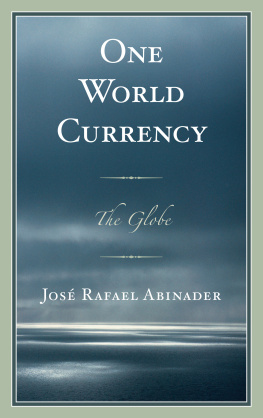

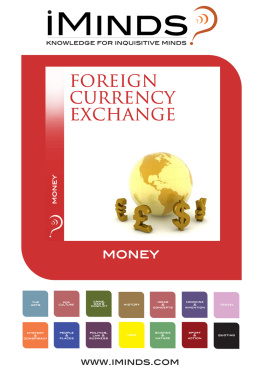
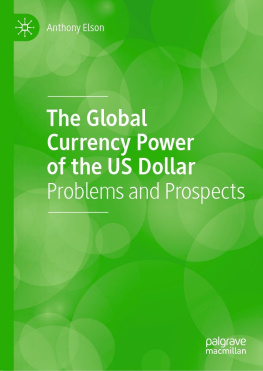
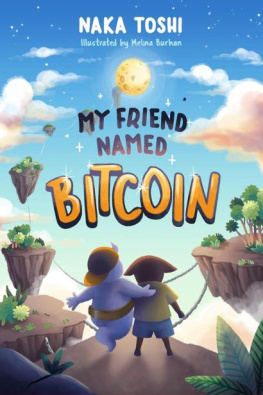
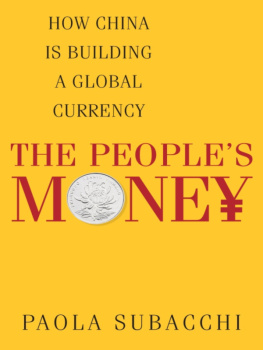
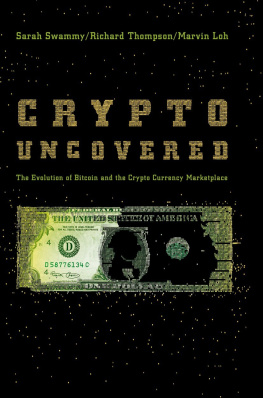
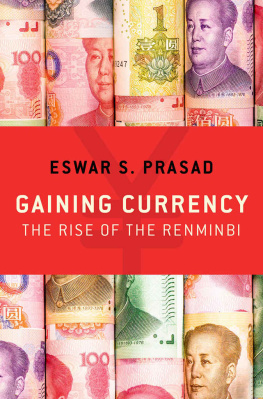
 TM The paper used in this publication meets the minimum requirements of American National Standard for Information Sciences Permanence of Paper for Printed Library Materials, ANSI/NISO Z39.48-1992.
TM The paper used in this publication meets the minimum requirements of American National Standard for Information Sciences Permanence of Paper for Printed Library Materials, ANSI/NISO Z39.48-1992.